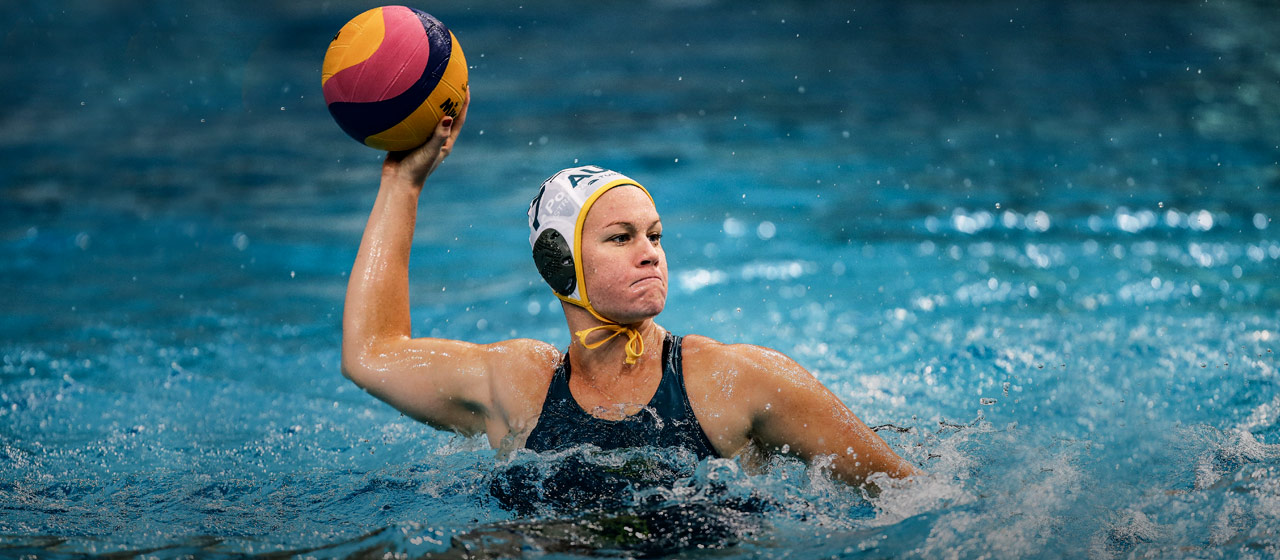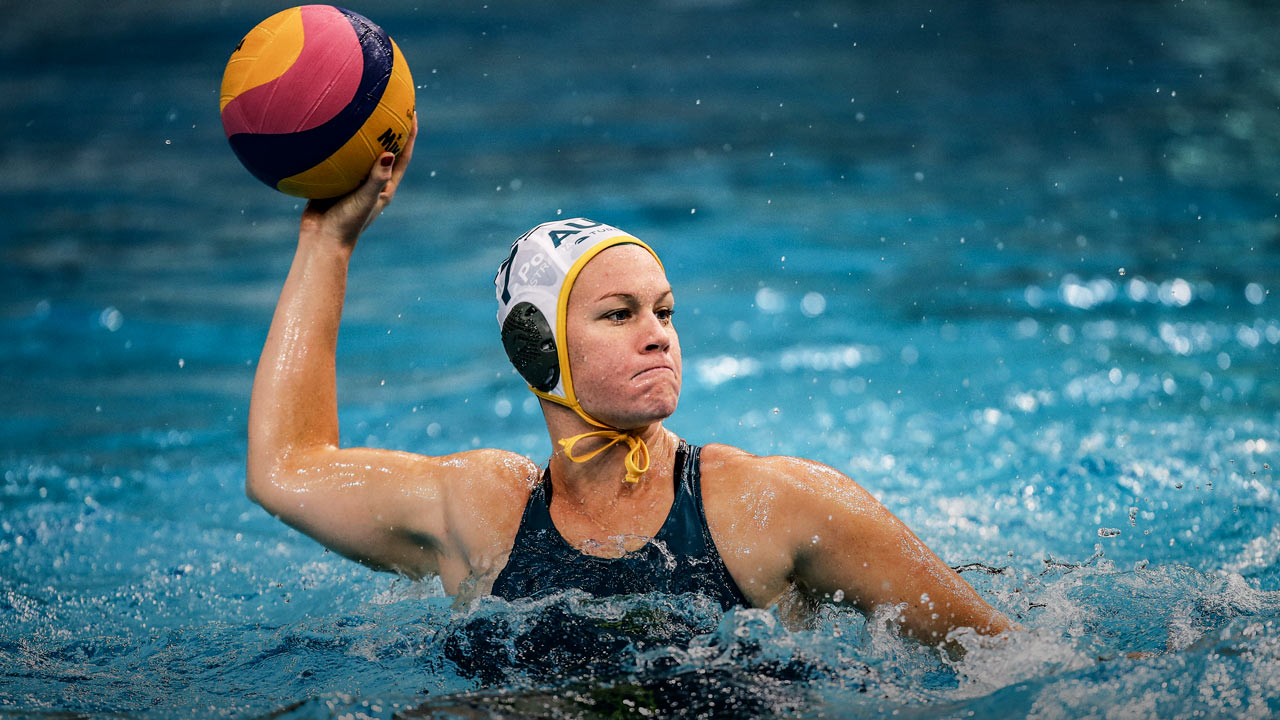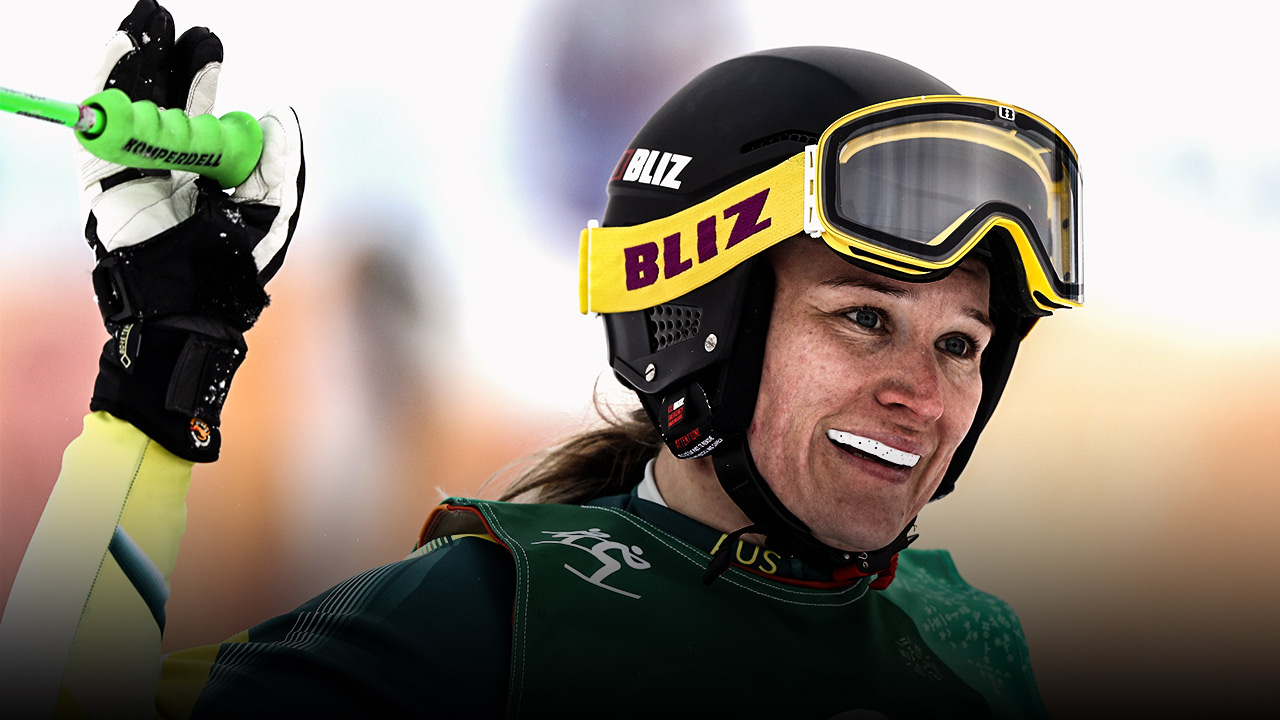Olympic Sports
You’d have to chop my leg off
It’s hard to go from being an elite athlete to being told you can’t do any exercise.
That you can only do 20 minutes of walking a day, because that’s all your body can cope with. That you have an unusual injury for water polo and without a long surgery lay-off, the rehab path is unclear.
That you’re going to be put on high doses of drugs.
I had bulging discs in my lower back, with nasty referred nerve pain. I would either have really bad pain in my legs, or I’d just lose feeling in them.
I came out of a training session at a national camp during January with some early symptoms, but I tried to play through it for a few weeks. A few tests, a few scans later, and the outcome wasn’t looking all that pretty for me.
I was prescribed medication to settle my body down, to try to shrink the discs and relieve some pain. I was going in for epidurals; I had six injections in my spine.
It was stressful and overwhelming. It was trial and error with a number of drugs; some only made the symptoms worse and it was back to square one. I just trusted the medics and did what I was told. I got called a space cadet a number of times (but hey, I’ll take that!)
I was in a pretty vulnerable state. Mentally, it was very hard. Daunting. Scary. I didn’t know if I would ever be pain-free again.
I thought I was going to have to retire, to be completely honest.
Two and a half months into my rehab, with no real improvement in my symptoms, I had that conversation with a group of the Australian team staff; doctors, medics, physios, my coach and the assistant coach. My fiancée was there, too. I asked, ‘Is this injury career-ending?’ Luckily, they said, ‘No, we believe we can get you back, fighting fit’.
That’s what we’ve been working towards. Eventually, we got it right.
I’ve missed the whole national league season and almost the whole international season this year. We’re pretty conservative with injuries in Australia, which I like, and it’s just been building the framework again from the bottom up.
The whole process has really tested my resilience. Learning just how deep that resilience runs has been the silver lining to a very difficult time.
I’ve been through every athlete’s worst nightmare, trusted the process and it’s paid off. I’m finally back with my Australian teammates and we’re headed to the World Cup in Russia. The pre-tournament camp is the first full training I’ve done this year.
It’s great to be back with the girls. I’m the captain of a young Stingers team and we’re aiming for a medal. I’m stoked.

As awful as it’s been, everything I have been through has been totally worth it. That’s because beyond this World Cup, it has kept alive my dream of going to a third Olympics.
You’d have to chop my leg off to keep me from Tokyo 2020. I told my coach that I’d play with a broken arm at the Olympic Games, I just don’t care. My dreams match my pain tolerance: high.
That’s why back surgery was not an option; everything we did was to escape going under the knife.
Some people say it takes 18 months to return from the type of back surgery that I would have needed. I just didn’t have the time up my sleeve to do such a radical intervention before the Olympics. We gambled, and it’s been a success.
Aussie athletes have the mentality that rain, hail or shine, we’re going to turn up and give it everything. And if you come through the hard times to walk out in the Australian Olympic uniform … those memories last a lifetime.
The Olympics are to thank for me having such a deep love for water polo. Our Olympics.

OLYMPIC DREAMS
Determination is something that’s always come naturally to me, being the fourth kid and the most stubborn in my family.
I’ve always fought for anything that I’ve got. You always want your own stuff, yet you’re always getting hand-me-downs, so you grow to love that chase for more.
My siblings have always been really supportive of what I was doing; ask any of them and they’ll all tell you that they taught me everything I know. They’re lying!
I’ve always been super competitive, super hungry. I can’t remember a day of my life where I didn’t want to go to the Olympics. In prep school, I said I wanted to be a princess and an Olympian, so I’ve achieved one of those things.
I rocked up to start Year 7 at Korowa Anglican Girls’ School and they had this funny sport called water polo. My siblings played, too; I did it because they did.
I still remember exactly where I was, exactly what I was wearing, when I saw the Australians beat the Americans with one second to go for a gold medal at Sydney 2000. I was sitting in my family home, wearing a Melbourne Demons T-shirt that my Nana and Pa bought me.
You’d have to chop my leg off to keep me from Tokyo 2020. I told my coach that I’d play with a broken arm at the Olympic Games, I just don’t care.
The reaction to that moment was so intense; at the pool and at our place. I had fallen in love with the sport and those memories give me goosebumps.
Ever since Yvette Higgins scored her famous goal, I’ve been chasing that Olympic dream.
Now, we’re lucky enough to have two of the members of that Golden Girls team as part of our staff: Bronwyn Smith (nee Mayer) and Taryn Woods. It’s pretty cool that we’re trying to repeat their history as they’re coming back into the sport. They were my idols growing up, now we’re trying to be idols for the next generation.
Making the podium at London 2012, a bronze medal at my first Olympics, was unbelievable. It was one of the best days of my life to have the other 12 girls by my side, holding hands as we stepped on to the dais. Seeing the smiles of the coaches, having our families there, it was incredible. I still get chills thinking about it.
Once we missed out at Rio 2016, it was new fuel on the fire. I honestly thought that I was going to retire after Rio, but the fact that we came up short … I couldn’t leave on that note. While I love the sport and I’ve still got more to give, why give up the best life? I said, ‘Let’s do this again’.
This group of girls that we’ve got, while we haven’t been that successful the past couple of years, I think we’ve really got the ability to medal again in Tokyo.

BITE MARKS & HARD WORK
Water polo has taken me a lot of places, from a young age. I’ve played in the US college system and professionally in Greece and Russia. I’ve had my fair share of travel.
Russia wasn’t the nicest place, but the experience made me a better player. The Russians don’t smile a lot and the players didn’t make the effort to chat to me, even though a lot of them spoke English. To me, what makes water polo a truly great sport is the friends you can make, the jokes you have on pool deck, the adventures you get up to in your down-time.
Greece was much more enjoyable, though I’ve had some bite marks in my time there. Some of those became scars, on my back; a souvenir, I guess. They perhaps don’t treat their teeth as preciously as we do. I play with a mouthguard, personally…
But the whole experience in Greece was so much fun. They play water polo, eat good food, drink good coffee and go to bed, then do it all again. It’s a pretty good lifestyle, to be a professional player over there. And you get treated like royalty.
Wherever you happen to be playing, I can’t think of a better thing to do than to swim around chasing a ball. Like puppies!
Ever since Yvette Higgins scored her famous goal at Sydney 2000, I’ve been chasing that Olympic dream.
But let’s face it: none of us do it for the money. We earn peanuts. The bronze that we won in London ended up being worth about 50 cents a day, against all the days we’d spent preparing to get it.
To anyone else, it’s nothing. To us, it’s priceless.
You need to have a bigger drive than just to be called an Olympian, just to be part of the team. We want more: to be the best in the world. That’s what we’re all working towards.
When I say working, I mean 14-15 sessions of training per week. That’s six days per week, Monday to Saturday, on top of work commitments.
I have a degree in PE teaching and I’m currently working at the Victorian Institute of Sport. Your first training session starts at 5am; then straight to work until 1-2pm; back in for a gym session; then a swimming or water polo session at night.
It gets pretty jam-packed. The food bill gets significantly higher on big training weeks, too.

THE WORLD CUP
Six games in six days. No room for error.
You always arrive early for a World Cup, get settled and play some training games ahead of your tournament opener. Ours is against China, September 4.
We’ve won silver in the past two World Cups, with the US winning gold. We’re hoping to be there on the last day again.
The US have been dominant for the past eight years: they’re the reigning World Cup, world championships and Olympic champions. I’d be clutching at straws if I said we could knock them off, but if we’re close come the final quarter, it’s anyone’s game.
This is the first time in the history of water polo that the tournament’s going to be 11 players a side, rather than 13. It’s a bit different; less rest with two less subs.
I think it will work to the advantage of teams that haven’t subbed too much in the past. We’re one of those teams. We’re fit and healthy. Some other teams will definitely struggle with it more than us.
We earn peanuts. The bronze that we won in London ended up being worth about 50 cents a day, against all the days we’d spent preparing to get it.
It may have another impact, too.
Dirty play is TOTALLY still a part of water polo. I reckon about 20 per cent of it gets seen by the refs and the crowd, 80 per cent doesn’t. Plenty of it happens underwater.
The rule of thumb is: do whatever you want, when you want, just don’t get caught.
We’re really friendly out of the water but once we’re in the pool, there are no friends. A solid kick or elbow never goes astray. If you get one of those back, you know that somewhere along the line you’ve pissed off someone on the other team.
With experience, you can anticipate when one of those is coming; duck and weave. The worst thing is when one of your teammates accidentally cleans you up, thinking you’re one of the opposition.
This World Cup, it may be that foul play reduces with 11 players, with the added fatigue and an enhanced adverse impact on your team.
Exclusion fouls will put even more pressure on the smaller rotation. And you’ll certainly have to be a bit smarter with how you use your lives, or personal fouls. Every player gets three lives and once they’re gone, you’re out of the game, which will hurt a team that little bit more with less players to carry the workload.
GETTING MARRIED
I got engaged this year to my partner, Ella Haines. It was very exciting.
I’m not the most organised person in terms of weddings, but luckily I’ve got a few teammates who are keen on planning a fun wedding for me. The girls are gearing up for a wedding in November next year.
The perks of being part of a 13-strong team of females! I’ll have my outfit organised, the venue, the flowers – all through water polo!
I’m absolutely stoked that marriage is an equal right now. I was out in Melbourne for the moment that the plebiscite results were announced. It was incredible.
I didn’t think it meant all that much to me but hearing the vote and the fact that Victorians voted the highest was unbelievable. I was caught up in the moment, so proud to be a part of that bit of history. I felt it even more for those who came before us and never got this opportunity.
Water polo has always been a very inclusive space. I’ve never had any problem with being slightly different. And our group of girls, we go so much deeper than being teammates. These are some of my best friends, and that’s the most important thing.
I’ve always been accepted. I haven’t been treated any differently. It’s so nice to know that we’re all the same, that we’re all human, and we just love who we choose to love.
Women’s sport has really been a leader in the public push for equal rights. I think sport is a much safer space for gay women than men, unfortunately. The men still have a long way to go for equality in sport. I just hope they can learn from women’s sport that it’s OK.
I can understand why a lot of male athletes stay in the closet. They’re scared of what people are going to say if they come out, that they could lose sponsorships. They’re scared of bullying. That fear is alive and well, unfortunately. I never had to deal with it.
I’m very lucky – in more ways than one.
More about: Injuries | Mental health | Rio 2016 | Tokyo 2020 | Water Polo | Women's Sport






 Load More
Load More